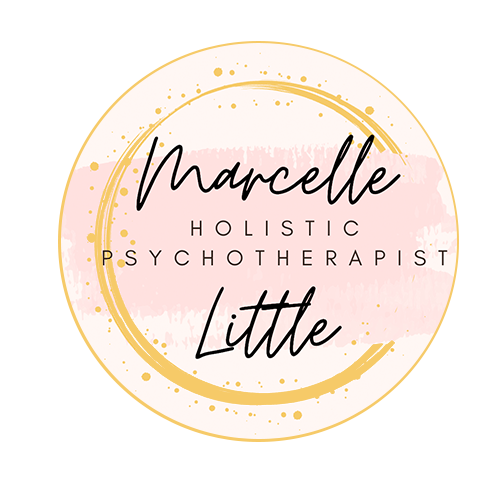12 Benefits of Compassionate Counseling for Women’s Issues
Women face a unique—and often invisible—set of pressures in today’s world. Whether it’s the expectation to “do it all,” the mental load of managing home and family, or the unspoken emotional labor in relationships, these demands can take a serious toll on your well-being. Many women also struggle with their relationship to food and their bodies in a culture that constantly scrutinizes appearance and worth. Added to this are cultural messages that devalue feminine strengths like empathy, intuition, and gentle leadership, leaving many women feeling unseen, unappreciated, or blamed for family struggles.
Therapy for women’s issues recognizes the distinct social, emotional, and relational challenges women encounter across their lifespan. It provides a safe space to process experiences like anxiety, depression, people-pleasing, codependency, relationship pain, life transitions, eating disorders, and the exhaustion that comes from always being “the glue” that holds everyone together. Compassionate counseling for women honors both your resilience and your vulnerability, offering support that is attuned to your lived reality and unique needs.
In my psychotherapy practice, I specialize in supporting women through the complexities and joys of being a woman today. Here are 12 ways compassionate counseling can help you reconnect with your inner strength and navigate your journey with more ease and clarity:
1. Finding Relief from Anxiety and Depression
When your inner world feels noisy, overwhelmed, or numb, therapy helps you tune in with kindness instead of judgment. Together, we’ll gently move out of survival mode—so you can experience more moments of calm, clarity, and hope.
2. Breaking Free from People-Pleasing and Codependency
If you’re the one who always holds everything together, it’s easy to lose touch with your own needs. Therapy supports you in identifying and honoring what you truly want, breaking patterns of over-functioning, and learning to say “yes” to yourself.
3. Healing Relationship Challenges
From old attachment wounds to communication breakdowns, we’ll explore the patterns shaping your relationships—without shame or blame. Healing starts with understanding, and therapy offers a safe, non-judgmental space to do that work.
4. Navigating Big Life Transitions
Moves, breakups, career changes, losses—transitions can feel destabilizing, especially when you’re expected to “keep it all together.” In therapy, you’ll find support for letting go of what was, honoring your feelings, and stepping into what’s next.
5. Releasing the Mental Load
Women often carry the invisible burden of holding the family or relationship together—the mental and emotional load that isn’t always seen or appreciated. Therapy can help you name this load, set boundaries, and reclaim more space for yourself.
6. Healing from Mother Blaming and Cultural Pressures
Society often places unrealistic expectations on women, especially around caregiving and emotional labor. Therapy offers a place to explore these pressures, unpack mother blaming, and challenge the devaluation of feminine strengths—like empathy, intuition, and soft power.
7. Restoring Balance with Mindfulness and Somatic Therapy
You don’t have to think your way out of everything. Mindfulness and somatic practices help you connect with your body, ground your nervous system, and feel safer and more at home in your own skin.
8. Processing Trauma with EMDR Therapy
If you’re ready to heal from trauma, release long-held beliefs, or shift old patterns of emotional reactivity, EMDR (Eye Movement Desensitization and Reprocessing) is an evidence-based approach that may be part of your healing journey.
9. Navigating Expat Life as an American Woman in Europe
Living abroad is both exciting and disorienting. I help American women navigate identity shifts, loneliness, and the emotional complexity of expat life, so you can feel more connected and resilient—even far from home.
10. Reclaiming Your Voice and Power
Compassionate counseling can help you unlearn internalized messages that tell you to stay small, be quiet, or “not rock the boat.” Therapy supports you in reconnecting to your own voice, intuition, and sense of agency.
11. Support for Eating Disorder Recovery and Body Image
Our relationship with food and our bodies is often complicated by societal standards and personal experiences. Therapy provides a safe, non-judgmental space to heal from disordered eating patterns, challenge harsh self-criticism, and cultivate a more compassionate relationship with your body. Together, we’ll work towards acceptance, nourishment, and self-respect—free from shame.
12. Setting Boundaries That Protect and Empower
Feminine principles aren’t about endless self-sacrifice. They include protection—of your time, energy, and needs. Therapy helps you create and maintain healthy boundaries so you can show up for yourself and others from a place of fullness.
Why Focus on Women’s Issues in Therapy?
Women’s issues are about so much more than any single diagnosis or struggle. They are woven through daily life—sometimes in visible ways, and often in subtle, persistent patterns. Therapy for women’s issues goes beyond symptom relief. It’s about helping you understand how generational patterns, cultural expectations, family dynamics, and even societal standards of beauty and worth have shaped your experience. It’s about supporting you as you reclaim your power, your voice, and your right to thrive in your own body and life.
Whether you’re grappling with the invisible burdens of emotional labor, navigating changing roles and relationships, working to heal your relationship with your body, or seeking to break free from people-pleasing and self-doubt, therapy offers a space to heal, grow, and rediscover what matters most to you.
You don’t have to carry it all alone. If you’re ready to invest in your well-being and step into a more authentic, empowered version of yourself—mind, body, and spirit—compassionate counseling for women’s issues can help you get there. Reach out today—I’d be honored to support you on your journey.
I’m Marcelle Little, a California and Florida-licensed psychotherapist (LMFT #129593, TPMF1241) and UK-registered practitioner offering online therapy for adults in California, Florida, and select European countries. My work integrates EMDR, somatic therapy, parts work, and depth psychology to help individuals heal trauma, anxiety, and intergenerational wounds.

